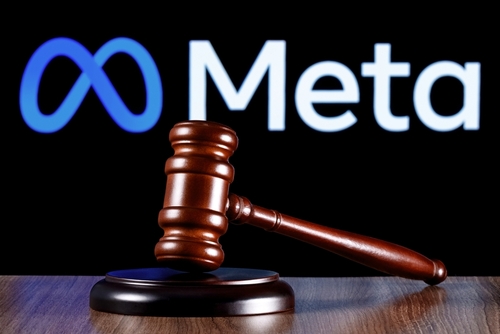“`html
In a recent turn of events, the Stanford Law School professor, Mark Lemley, announced via LinkedIn that he could no longer represent Meta, the parent company of Facebook and Instagram. This decision stems from what Lemley describes as a profound disagreement with the company’s apparent alignment with toxic masculinity and other harmful ideologies. The implications of his resignation have sparked discussions about ethics in legal representation and the broader impact of social media platforms.
Background on the Resignation
Mark Lemley, who holds the title of William H. Newcombe Professor of Law and serves as director of the Law, Science, and Technology Program at Stanford Law School, has a long-standing professional relationship with Meta. He was involved in representing the company in a copyright dispute in the Northern District of California related to a case called Kadry v. Meta Platforms. The case involves accusations that Meta improperly used works by multiple authors to enhance its artificial intelligence offerings. The situation escalated recently when Lemley felt that he couldn’t justify his continued representation of the tech giant.
Reasons Behind the Decision
Lemley’s resignation comes on the heels of alarming comments about Facebook’s handling of harmful content. In his LinkedIn post, he expressed his concerns, emphasizing that the platform has been a breeding ground for toxic masculinity and extremist views, including neo-Nazi ideology. He also noted that he had contemplated leaving Facebook altogether, acknowledging the platform’s potential benefits for personal connections but voicing discomfort with its current direction.
Meta’s Recent Changes and Controversies
Meta has faced increasing scrutiny over its policies and the impact of its platforms on public discourse. Recently, the company has announced the discontinuation of its third-party fact-checking program in the United States and modifications to its hate speech guidelines. Furthermore, it has decided to dissolve its diversity, equity, and inclusion initiatives, which has raised further concerns about its commitment to combating hate speech and misinformation.
Ethical Considerations in Legal Representation
The legal community is only beginning to respond to the ethical implications of Lemley’s resignation. Michael Frisch, an adjunct professor and ethics advisor, mentioned that a lawyer may ethically terminate a client relationship, provided that it does not harm the client. However, he highlighted that publicly criticizing a client can lead to ethical quandaries and potential repercussions for the attorney involved.
Implications for Legal and Ethical Standards
Lemley’s decision serves as an example of how personal ethics can intersect with professional responsibilities in law. While the withdrawal is legally permissible, it raises questions about the extent to which a lawyer can or should involve their personal ethics in their professional practice. The public’s response highlights a growing awareness of the need for ethical frameworks that can manage the relationship between legal representatives and controversial clients.
Conclusion
Mark Lemley’s decision to cease representing Meta highlights significant concerns regarding the roles and responsibilities of legal professionals in addressing ethical dilemmas posed by their clients. As social media platforms face increasing criticism for their roles in societal issues, the legal implications of representing such corporations will likely be scrutinized more closely moving forward. The intersection of law, ethics, and social responsibility is becoming increasingly complex, inviting legal scholars, practitioners, and the public to engage in broader discussions around corporate conduct and accountability.
FAQs
What led Mark Lemley to resign from representing Meta?
Mark Lemley cited concerns over the company’s alignment with toxic masculinity and its handling of harmful content as primary reasons for his resignation.
What is the significance of the Kadry v. Meta Platforms case?
The case involves allegations that Meta used works from multiple authors to train its artificial intelligence products, highlighting copyright issues within the tech industry.
Can a lawyer ethically terminate a client’s representation?
Yes, a lawyer can ethically terminate representation as long as it does not harm the client, but public criticism of the client can raise ethical concerns.
What changes has Meta announced recently?
Meta has announced the end of its third-party fact-checking program in the U.S., changes to its hate speech policies, and the dissolution of its diversity, equity, and inclusion initiatives.
How might this affect the relationship between lawyers and controversial clients?
Lemley’s decision may encourage legal professionals to critically evaluate the ethics of their client relationships and may influence more attorneys to withdraw from contentious representation.
“`

